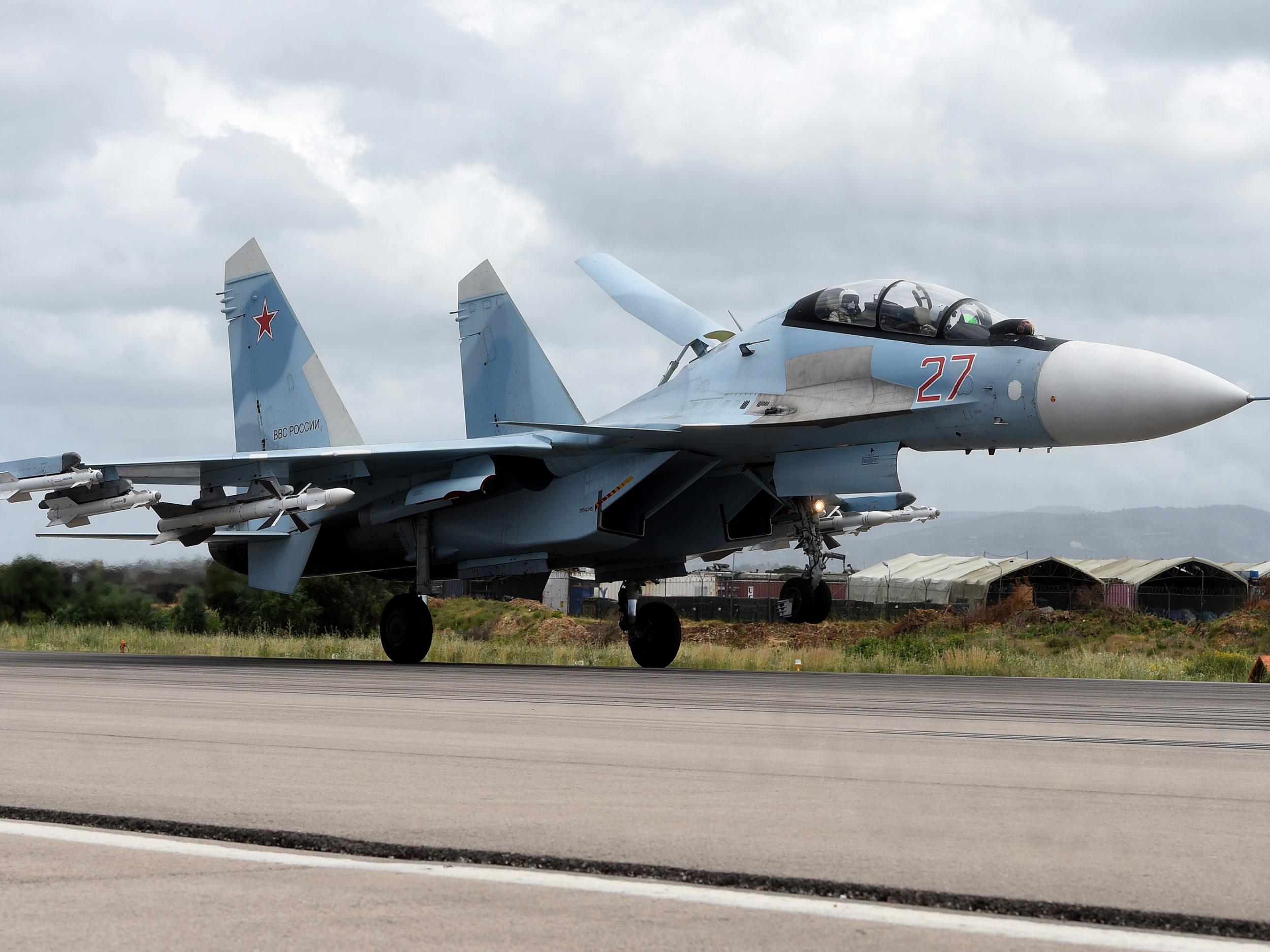Vladimir Putin renames Russian air force regiment after Estonian capital
Moscow said to be trying to destabilise Baltic region through 'strategic narratives'

Your support helps us to tell the story
From reproductive rights to climate change to Big Tech, The Independent is on the ground when the story is developing. Whether it's investigating the financials of Elon Musk's pro-Trump PAC or producing our latest documentary, 'The A Word', which shines a light on the American women fighting for reproductive rights, we know how important it is to parse out the facts from the messaging.
At such a critical moment in US history, we need reporters on the ground. Your donation allows us to keep sending journalists to speak to both sides of the story.
The Independent is trusted by Americans across the entire political spectrum. And unlike many other quality news outlets, we choose not to lock Americans out of our reporting and analysis with paywalls. We believe quality journalism should be available to everyone, paid for by those who can afford it.
Your support makes all the difference.Vladimir Putin has renamed a regiment of the Russian air force after the Estonian capital, in a move likely to be seen as provocative by leaders of the former Soviet Baltic state.
A presidential order announced the 23rd Fighter Aviation Regiment would now be known as the Tallinn Regiment.
The decree said the unit’s new name was intended to “raise spirit of military obligation” and “preserve holy historical military traditions”.
Estonia was under Soviet rule for nearly 50 years after being occupied during World War II. Russia’s annexation of Crimea from Ukraine heightened tensions in the Baltic states, and the Kremlin has been accused of attempting to destabilise the region.
Derek Averre, a senior academic who specialises in Russian foreign policy at the University of Birmingham, said Moscow’s renaming of the regiment was likely meant to be “provocative”.
“Russia is concerned that its influence is being further marginalised in the Baltic states and the dual NATO-EU enlargement has been pushed further eastwards,” he told The Independent.
He said renaming an air force regiment after Tallinn, a former strategic outpost of the Soviet Union, was indicative of Moscow’s use of “political narratives” to exert influence on former Soviet estates.
“The Russians like to make a point and as part of that the strategic narratives of Soviet Russian glories in the past,” said Dr Averre, Reader in Russian Foreign and Security Policy at the university.
He added: “In the absence of actually being able to exercise full control over the sovereignty it tends to take the form of cyber-mischief, trying to destabilise a bit through strategic narratives, trying to make people in these countries see things the Russian way.
"That’s been a feature over the last three or four years of Russian diplomatic intelligence operations.
“Part of the Russian narratives which have emerged since then are very much harking back to Russia’s past. [They include] a lot of talk of Russia being the saviour of Ukraine and Eastern Europe, casting off the yolk of Nazism during the Second World War and really going back to past historical glories, during the Soviet period particularly.”
Upnorth, an English-language news website covering the Baltic region, described the regiment’s renaming as “a naked attempt at intimidation” by Mr Putin.
The Soviet Union dropped thousands of bombs on Tallinn in repeated air raids during World War II. Hundreds of people, mostly civilians, were killed.
Last year Russia sent 2,500 troops to an airborne military drill in the Pskov region, which borders Estonia, raising anxieties about possible conflict in the region.
The UK has stationed troops in Estonia as part of a Nato mission to deter Russian aggression.
Join our commenting forum
Join thought-provoking conversations, follow other Independent readers and see their replies
Comments